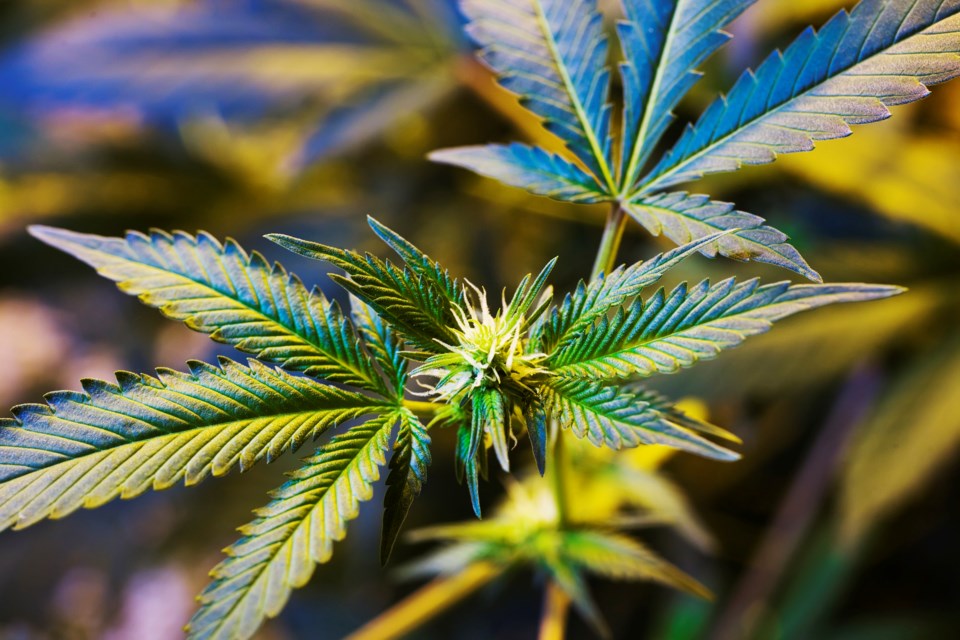A B.C. transport firm being sued by cannabis companies for $834,000 after a shipment was seized at the U.S. border has denied liability and has countersued the businesses for $23,922 for shipping invoice arrears.
The company denied liability the companies' negligence led to the problems.
In an April B.C. Supreme Court notice of civil claim, We Grow BC Ltd. and Alberta-based Westleaf Labs claimed Kelowna-based Seven Elk Shipping had been told not to take the shipment across the U.S. border.
The claim said the plaintiffs engaged Seven Elk in January 2023 to transport cannabis products throughout Canada. It claimed shipping agreements said Seven Elk would not attempt to transport cannabis products through the United States.
The claim said Seven Elk was to take possession of three pallets of cannabis from Port Coquitlam for transport to We Grow in Creston, and to take possession of two pallets from Delta for delivery to Westleaf in Calgary.
Court documents said Seven Elk took possession of the delivery in exchange for $11,901 in shipping fees.
“The products consisted of approximately 151,300 grams of cannabis products and paraphernalia, with a resale value of $823,317,” the claim said.
However, that same day, the truck attempted to cross the border at the Peace Arch crossing. The cannabis was seized.
Seven Elk, however, tells a different story in its May 6 response to civil claim and counterclaim. That company said the shipment was “funnelled to the Blaine-Peace Arch border crossing . . . through circumstances beyond its control.”
“Seven Elk has not breached its contractual services to We Grow and Westleaf as laid out in the Seven Elk terms of service,” the response said. “Seven Elk did take all reasonable steps to ensure the delivery truck did not attempt to enter the United States.”
The response asserted Westleaf and We Grow are liable in negligence for failing to ensure adequate insurance coverage for the shipment and for failing to follow procedure in providing a declared value prior to transportation.
“This negligence contributed to the damages resulting from the seizure as outlined in the notice of civil claim.”
Seven Elk said it began operating as a shipping and logistics company in April 2021 and began predominantly shipping cannabis in March 2022 in B.C, Alberta and Saskatchewan.
At that point, the response said, it began services for Westleaf and We Grow.
The response said Westleaf and We Grow contracted Seven Elk directly starting Jan. 16, 2023. Ite said the terms of service were provided to the clients on Jan. 16, 2023.
“The shipping agreements do not state that Seven Elk would not attempt to transport the cannabis products through the United States,” the response said. “The shipping agreements do not state that a credit or refund of shipping fees would be paid if Seven Elk failed to deliver the cannabis products to the designated consignee.”
The response said the first mention of the declared value was in a May 31, 2023 communication saying the loss was $250,000.
The complainants alleged the situation has harmed their reputation and has forced them to incur costs to replace products.
The complainants allege breach of contract, negligence, vicarious liability for the driver’s actions, damages and unjust enrichment.
We Grow and Westleaf also want compensation for the shipment and reimbursement of the shipping fees.
In the counterclaim, Seven Elk seeks compensatory damages for the financial losses incurred as a result of the alleged breach of contract and negligence.
Seven Elk claims those damages include:
• financial losses resulting from outstanding account arrears;
• operational impacts causing an inability to meet financial obligations;
• damage to profitability and sustainability as a business entity;
• loss of business reputation with customers; and,
• continuing harm due to insufficient prompt resolution and compensation for damages incurred.
Seven Elk also seeks punitive damages “to be determined by the court as a deterrent.”
None of the allegations have been proven in court.


